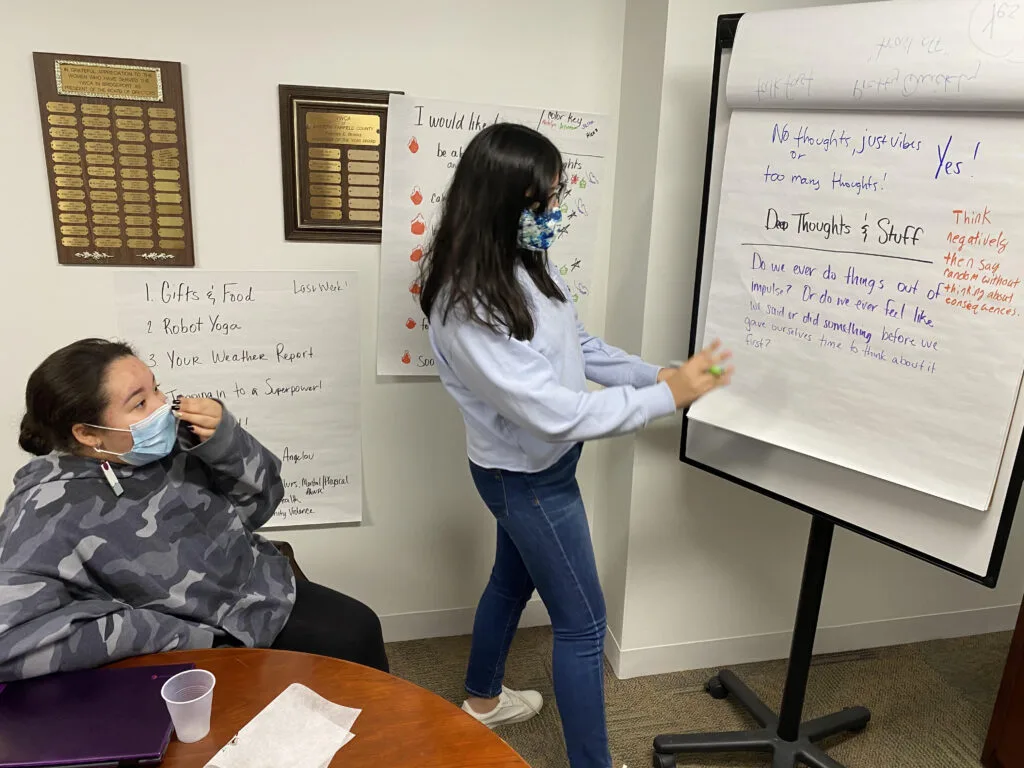
What’s the most difficult part of leading Youth-led Participatory Action Research? Ensuring that the project is, indeed, youth-led, according to violence prevention specialist Katelyn Owens.
As a facilitator at the Center for Family Justice’s ‘Pathways to Justice’ program, Owens has been busy coming up with ways to make sure the seven young students are leading the way in their project to identify justice issues and conduct research in their areas of choice.
“We make a lot of assumptions about kids as adults and we come up with things we think kids are going to think are cool all the time instead of just being comfortable enough to be in silence and create a space where they actually are going to provide feedback,” Owens said.
As a mechanism to implement ‘anti-adult’ techniques throughout the process, Owens starts her workshops off with questions.
“I’ll ask something like, ‘What are problems that adults are not seeing in this community?’ A lot of them say that adults don’t really listen to kids,” Owens said.
The questions continue with prompts like “What defines a community? What communities are you a part of? Who are the leaders in that community and who decides when there is a problem in the community?”
The questions prompt the group of 11 – 13 year-olds who meet weekly to begin feeling autonomous within the communities they find themselves in.
“It’s very hard for survivors when they are still in situations that are actively triggering, to shift their thinking to the individual level to the community level, which has taught me about how amazing it is that we have so many community activists and leaders who have such traumatic histories or difficult lives who do lead the way. That’s powerful,” Owens said.
The students involved are longtime members of Camp HOPE America – Bridgeport, an overnight therapeutic camping program run every summer by the Center for Family Justice for youth who have experienced violence in their lives. The Pathways to Justice research program will run every six months to a year after the first one is completed.
“This is a model that The Alliance brought us, but that we’re going to be continuing on with and continuing with as long as our justice program is alive,” Owens said.
The group is co-facilitated by Camp Hope Coordinator and Youth Trauma Specialist Sasha Collins She’s the queen of Camp Hope,” Owens said. “We wouldn’t get the kids in the room without her.”
As part of their program, Collins and Owens implement self-care techniques like meditative breathing, mindfulness and yoga to cope with the burden of realizing and working with the injustices around them.
“We’re focusing on preparing them for the emotional weight of doing this work, Collins said. “If you’re not taking care of yourself and you’re not advocating for your needs, you won’t show up to the movement in any way that’s productive.”
In the coming months as Covid permits, the students will finalize their topics for research and develop their methods to bring to their communities.
